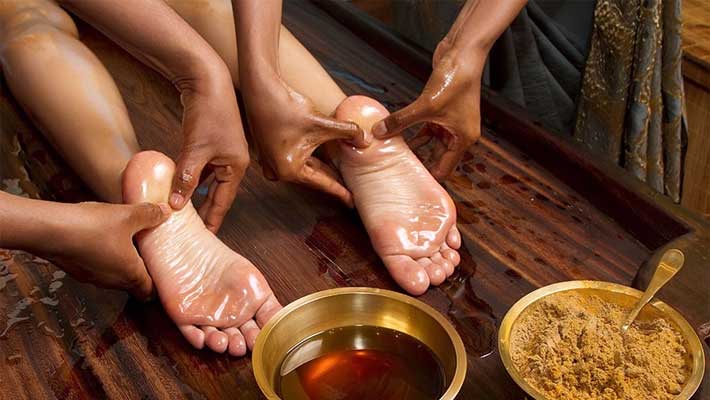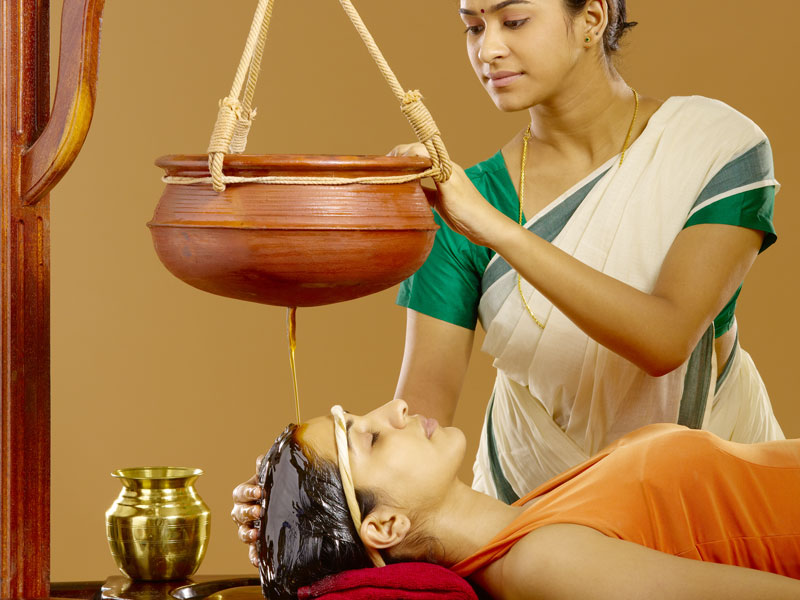Introduction to Ayurveda
Ayurveda, originating from the Sanskrit words “ayur” (life) and “veda” (knowledge), is an ancient holistic healing system that has been practiced in India for thousands of years. Rooted in the belief that health depends on the balance between mind, body, and spirit, Ayurveda offers a comprehensive approach to well-being that surpasses the limitations of modern medicine.
Principles of Ayurveda: The five elements and their influence on health
In Ayurveda, everything in the universe, including the human body, is made up of five elements: earth, water, fire, air, and ether. These elements combine to form three doshas, which are the biological energies that govern our physical and mental processes.
Understanding doshas: Vata, Pitta, and Kapha
The doshas, Vata, Pitta, and Kapha, represent the unique combinations of the five elements within our bodies. Vata is associated with movement, Pitta with digestion and metabolism, and Kapha with stability and structure. Each person has a dominant dosha that determines their physical and psychological characteristics.
Balancing doshas for optimal well-being
Ayurveda emphasizes the importance of maintaining a balance among the doshas to achieve optimal health. By identifying imbalances and making lifestyle changes, such as adjusting diet and incorporating specific herbs, Ayurveda seeks to restore harmony and promote well-being on both physical and emotional levels.
Ayurvedic Treatments and Therapies

Panchakarma: Detoxification and rejuvenation
Panchakarma, a cornerstone of Ayurveda, is a comprehensive detoxification method aimed at eliminating toxins and restoring the body’s natural balance. This cleansing process involves various therapies, including massage, herbal treatments, and specialized diets, to enhance vitality and rejuvenate the entire system.

Abhyanga: The art of Ayurvedic massage
Abhyanga, the ancient practice of Ayurvedic massage, goes beyond merely relaxing the body. It involves the use of warm, medicated oils and specific techniques to stimulate circulation, release tension, and promote lymphatic drainage. This therapeutic massage not only nourishes the skin but also calms the mind and enhances overall well-being.

Shirodhara: Relaxation and stress relief through oil pouring
Shirodhara is a profoundly relaxing Ayurvedic therapy that involves pouring a continuous stream of warm herbal oil onto the forehead. This gentle act triggers a rhythmic pattern that induces a meditative state, promoting mental clarity, reducing stress, and bringing harmony to the mind and body.
Ayurvedic herbs and their healing properties
Ayurveda values the healing power of nature and utilizes a vast array of herbs and plants for their medicinal properties. Herbs such as ashwagandha for stress relief, turmeric for inflammation, and triphala for digestive health are just a few examples of the wealth of botanical remedies used in Ayurvedic treatments.
Ayurveda for Physical Health
Dietary guidelines for holistic wellness
Ayurveda recognizes that food is medicine and provides specific dietary guidelines for individual constitutions. Drawing on the principles of the doshas, Ayurvedic nutrition emphasizes the importance of eating seasonally, choosing whole foods, and incorporating all six tastes (sweet, sour, salty, bitter, pungent, and astringent) to maintain balance and nourish the body.
Promoting digestion and improving gut health
A healthy digestive system is key to overall well-being in Ayurveda. Through mindful eating habits, specific spices, and herbal remedies, Ayurveda supports digestion and helps alleviate common gastrointestinal issues. The goal is to strengthen the Agni, the digestive fire, for optimal nutrient absorption and efficient elimination.
Managing chronic conditions through Ayurvedic approaches
Ayurveda takes a personalized approach to managing chronic conditions, acknowledging the unique needs of each individual. By addressing both the symptoms and the root causes, Ayurvedic treatments offer an alternative or complementary approach to conventional medicine for conditions such as arthritis, diabetes, and autoimmune disorders.
Enhancing immune system functioning
Ayurveda recognizes the importance of a robust immune system in maintaining good health. By supporting the body’s natural defenses through lifestyle modifications, specific herbs, and practices such as yoga and meditation, Ayurveda aims to strengthen the immune system and prevent the onset of diseases.
Ayurveda for Mental and Emotional Well-being
Understanding the mind-body connection in Ayurveda
According to Ayurveda, the mind and body are interconnected, each influencing the other. Mental and emotional well-being are essential for overall health, and Ayurveda offers various techniques to balance emotions and promote a calm mind. By nurturing the senses, practicing mindfulness, and engaging in self-care rituals, Ayurveda helps maintain emotional equilibrium.
Managing stress and anxiety with Ayurvedic practices
Stress and anxiety are prevalent in today’s fast-paced world, and Ayurveda provides valuable tools for managing these modern-day challenges. Through specific herbs, breathing exercises, meditation, and lifestyle adjustments, Ayurveda aims to reduce stress hormones, improve mental clarity, and create a sense of inner peace.
Improving sleep and promoting relaxation
Restful sleep is crucial for overall well-being, and Ayurveda offers strategies to promote sound and rejuvenating sleep. Creating a soothing bedtime routine, using essential oils, practicing gentle yoga, and cultivating a peaceful environment are some of the Ayurvedic approaches to achieve deep relaxation and optimal sleep patterns.
Ayurveda and Holistic Beauty Care
Ayurvedic skincare and the use of natural ingredients
Ayurveda considers the skin as a reflection of inner health and believes in nurturing it holistically. Beyond superficial beauty, Ayurvedic skincare emphasizes the use of pure, natural ingredients, tailored to one’s unique skin type, to rejuvenate, balance, and protect the skin. By focusing on both internal and external factors, Ayurvedic skincare supports long-lasting radiance.
Haircare and rejuvenation through Ayurveda
In Ayurveda, beautiful hair is a symbol of overall well-being. Ayurvedic hair care involves nourishing the scalp, stimulating hair growth, and preventing hair loss through the use of herbal oils, cleansing rituals, and dietary considerations. These practices promote lustrous and healthy hair from root to tip.
Ayurveda and Lifestyle Modifications
Incorporating Ayurvedic routines into daily life
Ayurveda extends beyond isolated treatments and encourages the incorporation of daily routines, known as Dinacharya, for continued well-being. These routines may include practices such as tongue scraping, self-massage, oil pulling, and meditation, tailored to individual constitution and the current season.
Seasonal Ayurvedic practices for optimal health
Ayurveda recognizes the influence of the seasons on our well-being and recommends adapting daily routines and diet according to seasonal changes. By aligning ourselves with the rhythms of nature, we can optimize our energy levels, enhance immunity, and maintain balance throughout the year.
Ayurveda and Modern Medicine
Integrating Ayurvedic principles in conventional healthcare
Recognizing the rich wisdom of Ayurveda, some healthcare professionals are incorporating Ayurvedic principles into conventional medical practices. By considering an individual’s dosha and addressing both physical and emotional aspects, an integrated approach can provide a more comprehensive and personalized healthcare experience.
Complementary use of Ayurveda alongside modern treatments
Ayurveda is often seen as a complementary approach to modern medical treatments. It can enhance the effectiveness of conventional therapies by addressing lifestyle factors, improving overall health, and reducing side effects. However, it is essential to seek guidance from qualified Ayurvedic practitioners to ensure safe and appropriate integration.
Ayurveda and Women’s Health
Ayurvedic approaches to menstrual health and hormonal balance
Ayurveda recognizes the unique needs of women throughout their menstrual cycle and offers specific recommendations for menstrual health and hormonal balance. Through dietary adjustments, herbal remedies, and self-care practices, Ayurveda aims to alleviate discomfort, regulate menstrual cycles, and promote hormonal harmony.
Postpartum care and Ayurveda
Ayurveda provides comprehensive guidance for postpartum care, known as Sutika Paricharya, to support a woman’s recovery after childbirth. With specific dietary guidelines, herbal formulations, and rejuvenating therapies, Ayurveda helps restore vitality, balance hormones, and enhance the bond between mother and child.
Ayurvedic Practices for Longevity and Aging Gracefully
Ayurvedic anti-aging techniques
Ayurveda emphasizes the importance of aging gracefully by nurturing the body, mind, and spirit throughout life. Through balanced nutrition, herbal supplements, rejuvenating therapies, and mindful practices, Ayurveda offers various anti-aging techniques that promote longevity, vitality, and cognitive health.
Promoting longevity through Ayurvedic lifestyle
Ayurveda believes that longevity is influenced by lifestyle choices. By following a wholesome diet, engaging in regular exercise, managing stress effectively, and cultivating healthy relationships, Ayurveda provides a roadmap for healthy aging and a long, fulfilled life.
Ayurveda and Mindfulness
Incorporating mindfulness practices in Ayurveda
Ayurveda and mindfulness share a common goal of bringing awareness to the present moment. Cultivating mindfulness through techniques such as meditation, breathwork, and mindful eating enhances the Ayurvedic journey, deepens self-understanding, and fosters a sense of peace and contentment.
Achieving balance and tranquility through mind-body awareness
Ayurveda encourages individuals to cultivate mind-body awareness as a means to enhance balance and tranquility. By listening to the subtle signals of the body, practicing yoga, and engaging in self-reflection, Ayurveda helps forge a deeper connection between our physical and mental well-being.
Ayurvedic Practices and their Scientific Validity
Research and studies supporting Ayurvedic medicine
Ayurveda has a growing body of scientific research that validates the efficacy and safety of its practices. Numerous studies have explored the benefits of Ayurvedic treatments, including herbal medicine, yoga, and mindfulness, demonstrating their potential in improving various health conditions and enhancing overall well-being.
Criticisms and limitations of Ayurveda
While Ayurveda has gained recognition and popularity, it is not without its critics. Some highlight the lack of standardization and scientific evidence, as well as potential risks associated with unqualified practitioners. However, these concerns are being addressed through ongoing research, regulation, and the promotion of evidence-based Ayurvedic practice.
Ayurveda in the Modern World: Revival and Global Impact
Growing interest in Ayurveda worldwide
Ayurveda’s holistic approach and its ability to address modern health challenges have sparked a growing interest globally. More people are turning to Ayurveda for alternative and complementary healthcare options, seeking a balanced and mindful approach to well-being.
Ayurveda as an alternative approach to modern lifestyles
In a world dominated by stress, sedentary lifestyles, and environmental toxins, Ayurveda offers an alternative path to wellness. By addressing the root causes of imbalance and promoting holistic self-care practices, Ayurveda provides a roadmap for living in harmony with ourselves, others, and the planet.
FAQs on Ayurveda
What is the history of Ayurveda?
Ayurveda has its roots in ancient Indian civilization and dates back over 5,000 years. It originated from the Vedas, the ancient scriptures of wisdom, and has been handed down through generations, evolving and adapting to the needs of each era.
How can one determine their Ayurvedic dosha?
Determining your Ayurvedic dosha involves a comprehensive assessment of your physical, mental, and emotional characteristics. This assessment considers factors such as body type, digestion, sleep patterns, and personality traits to identify your unique doshic constitution.
Are there any potential side effects of Ayurvedic treatments?
When practiced under the guidance of trained Ayurvedic practitioners, Ayurvedic treatments are generally safe. However, individual sensitivities, allergies, or improper administration can lead to adverse reactions. It is crucial to consult with a qualified practitioner and disclose any pre-existing health conditions or medications to ensure safe and appropriate treatment.
Can Ayurveda complement conventional medical treatments?
Yes, Ayurveda can complement conventional medical treatments. By addressing lifestyle factors, promoting overall health, and reducing side effects, Ayurveda can enhance the effectiveness of modern medical interventions. However, it is essential to have open communication between Ayurvedic and conventional healthcare providers to ensure appropriate integration.
Is Ayurvedic medicine suitable for pregnant women?
Ayurveda offers specific guidelines and herbal formulations for supporting pregnant women and maintaining their well-being. However, it is important for pregnant women to consult with qualified Ayurvedic practitioners who specialize in prenatal care to ensure the safety and appropriateness of any Ayurvedic interventions.
Summary: Harnessing the Power of Ayurveda in Today’s World
In the fast-paced modern world, Ayurveda provides a holistic approach to wellness that integrates ancient wisdom with contemporary living. By embracing Ayurvedic principles, individuals can tap into the profound benefits of this ancient science, restoring balance, and optimizing their physical, mental, and emotional well-being. Let us embark on this transformative journey towards holistic health and a harmonious existence.
Disclaimer: This article is for informational purposes only and should not be considered medical advice. Consult with a qualified healthcare professional before starting any new treatments or protocols

